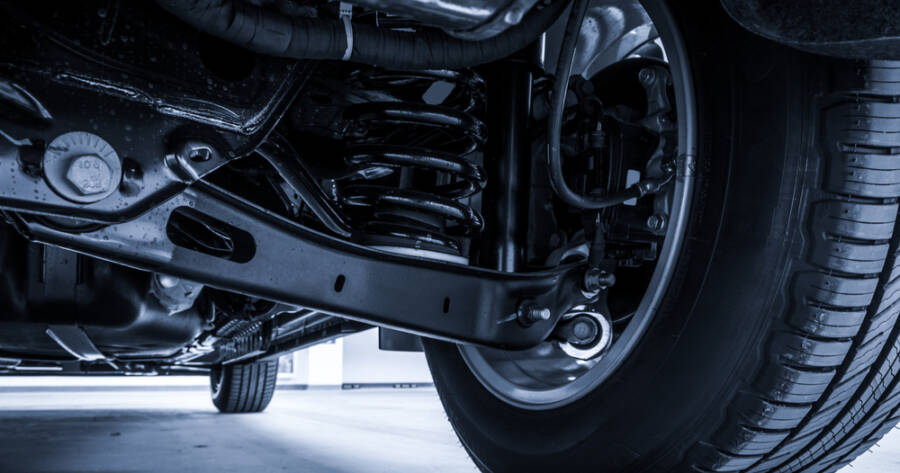Your truck’s suspension system does more than just smooth out bumps. It helps control your steering, supports the vehicle’s weight, and ensures your tires stay in contact with the road. Over time, wear and tear can affect its performance. Knowing the signs of a struggling suspension can keep you safer and help prevent costlier repairs down the road.
1. Your Ride Feels Rougher Than Usual
One of the first things most drivers notice is a change in ride comfort. If your truck starts to feel bouncy, shaky, or harsh on roads that were once smooth, your suspension may be struggling. This could be caused by worn-out shocks or struts that no longer absorb the road’s impact.
The difference might show up slowly. At first, you may only notice it on rough roads or after hitting a pothole. But over time, even small bumps can feel exaggerated. If the truck seems to keep bouncing after going over a bump, that’s often a sign your shock absorbers are worn out and need attention.
2. The Truck Pulls to One Side
If your truck starts drifting or pulling when you drive straight, it could be a suspension problem. Of course, alignment and tire issues can also cause pulling, but if those have been checked, the suspension might be the root cause.
This type of pulling often means a part of the suspension system is no longer balanced or is wearing unevenly. The more you drive with this issue, the harder it becomes to keep the vehicle on a straight path. Not only does this affect handling, but it also puts extra stress on tires and steering components.
3. Uneven Tire Wear Appears
Your tires can tell you a lot about your suspension. If you see one tire wearing out faster than the others—or if the tread wears in unusual patterns—it may mean your suspension isn’t distributing the truck’s weight evenly.
Suspension parts like ball joints, bushings, and control arms help keep everything aligned. When those wear down, weight shifts unevenly, and tires respond by wearing faster on one side or edge. It’s smart to inspect your tires regularly, especially if you’ve noticed changes in ride feel or handling.
4. You Hear Strange Noises While Driving
Suspension trouble can sometimes be heard before it’s seen. If you notice clunking, creaking, or squeaking when driving over bumps, turning, or braking, don’t ignore it. Those sounds often come from worn or broken suspension parts like bushings, sway bars, or control arms.
In some cases, the noise may be subtle. But if it becomes louder over time or you start hearing it more often, it likely means something is loose or failing. These noises usually point to parts that are no longer holding things together properly, which can eventually affect control and safety.
5. The Truck Sits Lower on One Corner
Take a look at your truck from the front or side. If one corner looks lower than the rest, that’s a visual clue your suspension might be sagging. A broken spring or failing shock can cause one wheel to drop lower than it should.
This can affect steering and increase wear on nearby components. If the drop is extreme, you may also hear scraping or rubbing while driving. It’s a good idea to check this if your truck has started handling oddly or seems to lean when parked.
Stay Ahead of Suspension Issues
The suspension system is made to last, but it’s not built to last forever. How you drive, where you drive, and how much weight your truck carries all affect how long your suspension stays in good shape. Regular inspections and early repairs can help avoid big problems later.
Keep in mind that suspension issues often build slowly. You might not notice a small change right away, but even a minor issue can grow into a safety concern. If you ever feel unsure about how your truck is handling or sounding, a trusted mechanic can perform a full suspension check.
Keep Your Truck Safe and Smooth
Taking care of your truck’s suspension isn’t just about comfort—it’s about control, safety, and long-term performance. Catching issues early can make your ride smoother, your tires last longer, and your steering more precise.
Whether you’re driving on highways or dirt roads, a healthy suspension keeps you in command. Pay attention to these signs, and your truck will return the favor with safer, steadier drives ahead.

